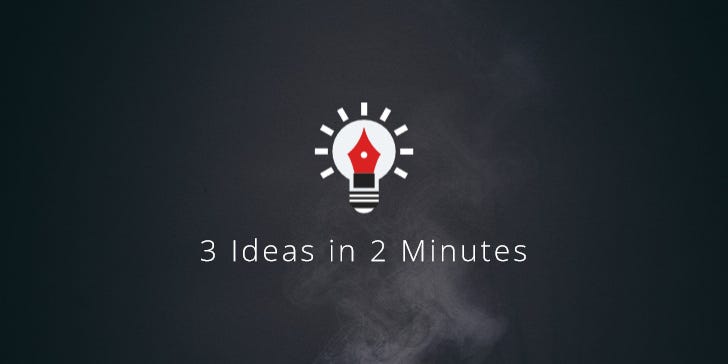#199: RICE, Usability Trap & Ragebait
3 Ideas in 2 Minutes on Unexpected Manipulation
I. RICE
What motivates you? And how can those motivations be used against you? According to former three-letter-agency spy Andrew Bustamante, we all have four core motivations. Not only can they be neatly summarised with the acronym RICE (Reward, Ideology, Coercion and Ego). They can also be exploited to manipulate you.
Reward: This simple motivation is based on offering incentives or benefits to encourage certain behaviours. You work longer hours, you get more money. You eat your dinner, you get a pat on the back and dessert. With the right reward, people do what they otherwise wouldn’t.
Ideology: Manipulation can also occur by appealing to a person’s beliefs, values or sense of purpose. The burning nationalist, the devout Christian, the big believer in the truth. They may do something for free as long as what is asked of them validates their worldview.
Coercion: This level of manipulation involves using threats, force or blackmail to compel someone to act in a certain way. You’re in debt? You have a secret you don’t want to come out? You have any other vulnerability? Here’s the proverbial offer you cannot refuse.
Ego: Manipulation can also happen through someone’s sense of pride or identity, that is how they want to be perceived by others. This tactic exploits a person’s desire to feel valued, respected or superior. “You’re the smartest and most respected member of our team. I’m sure you can convince the boss to not fire me.“
II. Usability Trap
Usability Heuristics, such as Recognition Rather than Recall, make your online life easier by guiding user interface design. For instance, our short-term memory is limited. So when filling out an online form, the info needed should be visible and easily retrievable.
Usability Traps make a user’s life harder. Every unnecessary step, barely visible button and extra click make it more likely that users will abandon the website or form. But their cunning use can also manipulate you into doing things you otherwise wouldn’t, such as cancelling your cancellation of a costly membership.
Case in point is Amazon’s Project Iliad. Named after the epic Greek poem with over 15,000 lines, it made headlines in 2023. Allegedly, Amazon wanted to make it harder for customers to cancel their Prime membership. How? By making the process so needlessly complex, multilayered and complicated that many users would give up and abandon the form.
III. Ragebait
The easier you’re outraged, the easier you can be manipulated. Ragebait is content designed to provoke anger and outrage. It exploits our emotional reactions with the goal of driving traffic or interaction. Consider the headline:
Seinfeld a terrible show. Science declares Friends winner in 90s sitcom showdown.
As a Seinfeld superfan, you can either click and comment on the article in hot rage, celebrating a False Victory. Or you pause, control your emotions and go about your day. 🐘
Have a great week,
Chris
themindcollection.com

